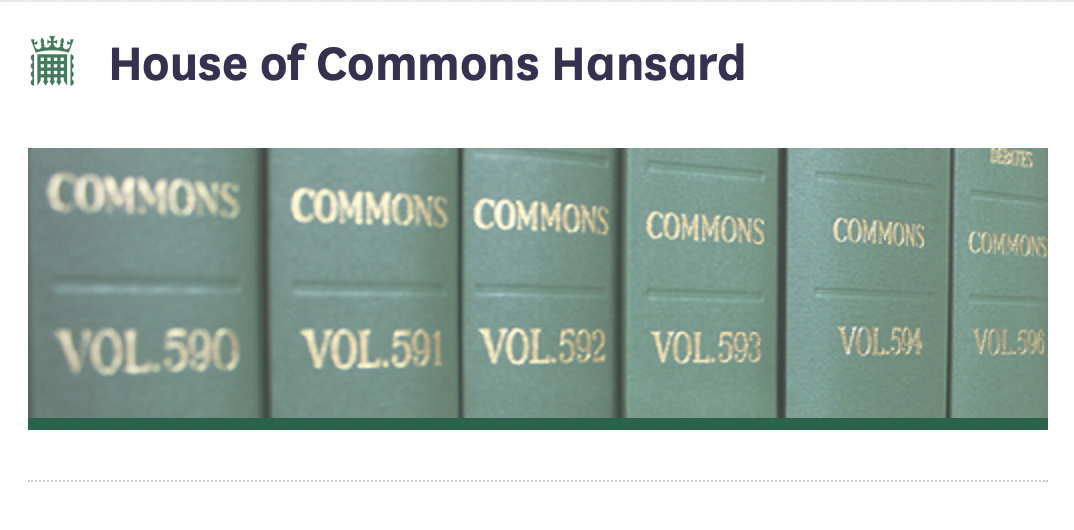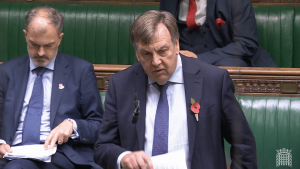Over the past five years, the Culture, Media and Sport Select Committee, which I chair, has examined the issue of the standards and ethics of the press three times. Each time, what we have uncovered has caused us serious concern about the way in which the press operates in this country; we have revealed information that we all found truly shocking.
Mr John Whittingdale (Maldon) (Con):
It is important that we remember the people who have suffered at the hands of the press, including the McCann family, the Dowler family and Christopher Jefferies. However, it is also important to note that all in those cases suffered as a result of breaches of the law. Breaches of the Data Protection Act, the Regulation of Investigatory Powers Act 2000, the contempt of court laws and the libel laws were all involved in the suffering of those people.
That is one of the reasons that I agree strongly with the earlier remarks of the Chairman of the Home Affairs Committee, the right hon. Member for Leicester East (Keith Vaz). There are still big questions to be answered about how serial breaches of the law could take place in newsrooms and how the police appeared to do absolutely nothing about it, despite having the necessary evidence for a number of years. I very much hope that we will see the establishment of part 2 of the Leveson inquiry—whether it takes place under Lord Leveson or not is not the most important point—because we need answers to those questions once the criminal prosecutions have been exhausted.
Dr Julian Lewis (New Forest East) (Con): So far as the breaches of the criminal law are concerned, will my hon. Friend confirm that, if a statutorily based supervisory body were to discover that the criminal law had been broken—through phone hacking, for example—that would become a matter for the police anyway as soon as it was discovered and that, terrible though the suffering of the Dowlers was, their case is, in a sense, really rather irrelevant to the supervisory body that we ought to have?
Mr Whittingdale: I am not sure that I would say their case is irrelevant, because it plainly provided evidence of the way in which the press seemed to feel that they was above the law, and that is a matter for a body overseeing ethics and standards. My hon. Friend is right, however, to say that that matter should have been dealt with by the police, and we still need answers as to why it was not.
Chris Bryant: The point, surely, is that the Press Complaints Commission was part of the problem. It was self-regulating, and for far too long it admitted the “one rogue reporter” line that was being touted by News International because it saw itself as a spokesperson for the industry and for the newspapers, and not as an independent body.
Mr Whittingdale: It may surprise the hon. Gentleman to know that I agree with him. There is no question but that all of us in this Chamber are of one mind that the system of self-regulation administered by the Press Complaints Commission has failed. The commission produced a report saying that there was no evidence that anyone other than the one rogue reporter was involved, at the same time as my Select Committee produced a report saying that there was ample evidence and that we found it inconceivable that the rogue reporter defence was true. We are all agreed that we cannot continue with a system of self-regulation. The idea of the press marking its own homework, as Lord Leveson rightly put it, does not work and cannot continue—but that is not what is in prospect today.
David Simpson (Upper Bann) (DUP): Victims have been mentioned many times today. Does the hon. Gentleman agree with me that it is sad that, because they fear that the Government will let them down, the victims have started a campaign themselves. Is that not a sad reflection on what is happening?
Mr Whittingdale: It is our job in this House to persuade the victims that what is now in prospect is a different regime that would have the necessary teeth to prevent the kind of abuses they suffered. I believe that that is the case, and that we have a duty to get that message across to them.
Let me take us back to the report our Select Committee produced in 2010. We clearly said that we needed a new body, which needed to have
“the ability to impose a financial penalty”
when the press had failed, and to have a responsibility
“for upholding press standards generally”—
things that the Press Complaints Commission was never equipped to do. We went on to say in that unanimous report of the Select Committee two years ago:
“We do not accept the argument that this would require statutory backing, if the industry is sincere about effective self-regulation it can establish the necessary regime independently.”
Earlier this year, I chaired another Committee, a Joint Committee of both Houses on privacy and injunctions. Again, we looked at these matters in some detail. That body, too, reached a conclusion that
“the current system of self-regulation is broken and needs fixing.”
Again, that Committee recommended a new independent body with stronger powers. The report went on to say —this was supported by Labour members of the Committee —that
“should the industry fail to establish an independent regulator which commands public confidence, the Government should seriously consider establishing some form of statutory oversight”,
but it went on:
“At this stage we do not recommend statutory backing for the new regulator.”
George Eustice: Will my hon. Friend give way?
Mr Whittingdale: My hon. Friend was a member of the Committee who I know did not agree with that particular conclusion, but I will give way.
George Eustice: On precisely that point, a number of us here who sat on the Committee did indeed disagree with that and feel that there needed to be some statutory underpinning. Will my hon. Friend inform us how narrow the margin was when it came to endorsing this report at all?
Mr Whittingdale: I think I have the figures. My hon. Friend is absolutely right: the Committee divided at the end—10 in favour, and 7 against. I would point out, however, that among the seven were Lord Black of Brentwood and my hon. Friend the Member for Shipley (Philip Davies), who I think my hon. Friend will find are not necessarily totally in agreement with his particular viewpoint.
The Hunt-Black proposals are no longer on the table. I agree with Lord Leveson that they were not sufficiently independent. It is clear that the new body has to be completely independent of the press, and it has to have a board that does not have serving editors on it. There are elements where a new body could have some kind of statutory support. Some hon. Members may have seen the comments of Shami Chakrabarti, who talked about how a body could have statutory recognition. I would draw the House’s attention to the submission made to the Leveson inquiry by Lord Hunt, in which he pointed out that the Irish Defamation Act 2009 contains a provision that recognises the activity of the Irish Press Council and allows the courts to take account of
“the extent to which the person adhered to the code of standards of the Press Council and abided by the determinations of the Press Ombudsman and determinations of the Press Council.”
That seems to me entirely sensible. It is a way of giving the press incentives to join such a body. However, Lord Hunt went on to say:
“I do not believe this in any way crosses a ‘red line’ for those of us who have serious qualms about a statutory regulator: the Press Council in the Republic of Ireland may be recognised in a statute, but it is not created by it.”
That, essentially, is the difference in this matter. It is a question of whether we trust the press to establish a truly independent body with real powers that will be able to punish breaches of the code, and that the press will abide by it, or whether we believe that the press will not go along with that, and that therefore there must be statutory support. It is not a question of powers; there is no difference between what is on the table in terms of the powers available to the body and what Leveson recommends. It is merely a question of whether we trust the body, and the press, to go along with it. If we do not, we support the idea of statutory regulation. However, we must be clear about the fact that starting to legislate over the press would be is a huge step for us to take.

